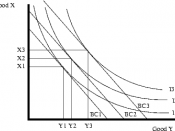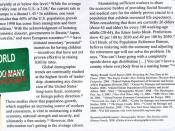INTRODUCTION
For decades, scholars and practitioners have been frustrated by the very limited capacity of either psychological or marketing models to predict individual choices on particular occasions. This paper discusses a theory which explains the degree to which the extant models omit important influences that produce varied individual choice behaviour. The focus of this paper is on the sequences of product purchases. Discretionary actions and activities are also covered.
THE THEORETICAL AND APPLIED RELEVANCE OF VARIED BEHAVIOUR
The assumption that consumers make rational, utility-maximizing choices has played an important role in economic thought. As long as preferences remain unchanged, the consumer is expected to choose the most preferred of the available products. Thoughts about consumers' behaviour towards substitutes hold a similar position. If a consumer's preference for the most preferred alternative product declines or the product is currently unavailable, the consumer is expected to choose a close substitute. From the firm's strategic point of view, this means that the marketer of a secondary brand should make its brand similar to the most popular brand.
Careful consideration of the preceding description of consumer choice behaviour and the firm's selection of a strategy immediately leads one to question the general applicability of these assumption / thought. Although consumers often display stable preferences, sound choice behaviour seldom remains constant. Instead, consumers frequently change their choices of products or brands. Furthermore, the choices made on different occasions often involve two very different products or brands. In summary, changing, varied behaviour is the rule. Managers often avoid the use of simple 'me-too' brands, recognizing that consumers are seeking more than simple substitutes. This tendency is seen directly in a number of product categories in which successful products are seldom replaced with highly similar products. Instead, a degree of product newness is viewed as being essential...


